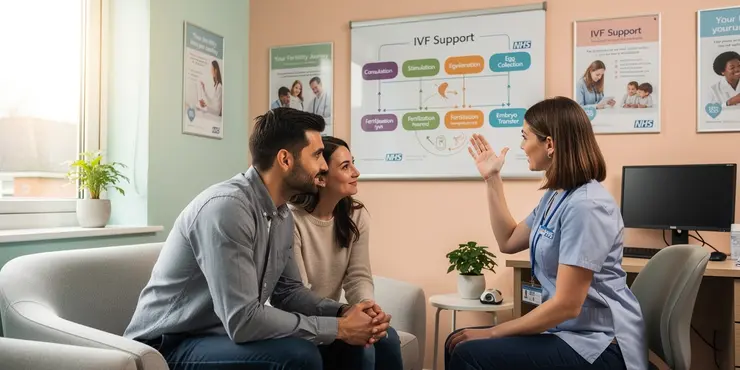
Find Help
More Items From Ergsy search
-

What are the main steps in an IVF cycle?
Relevance: 100%
-
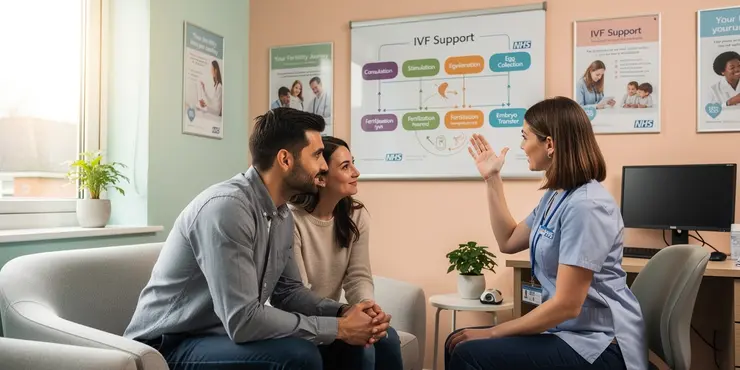
How long does an IVF cycle take?
Relevance: 99%
-

Is IVF successful?
Relevance: 80%
-
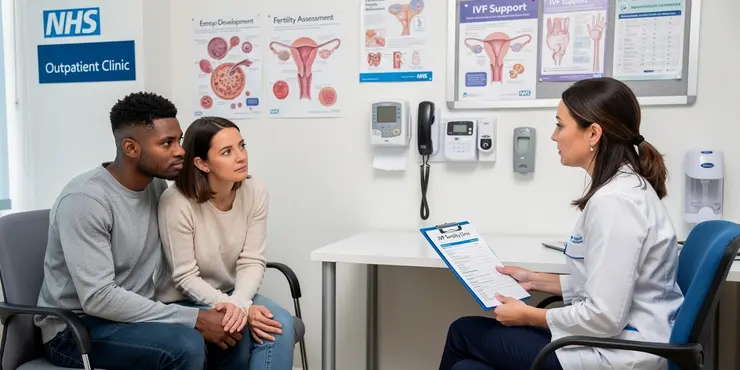
Does IVF guarantee pregnancy?
Relevance: 74%
-
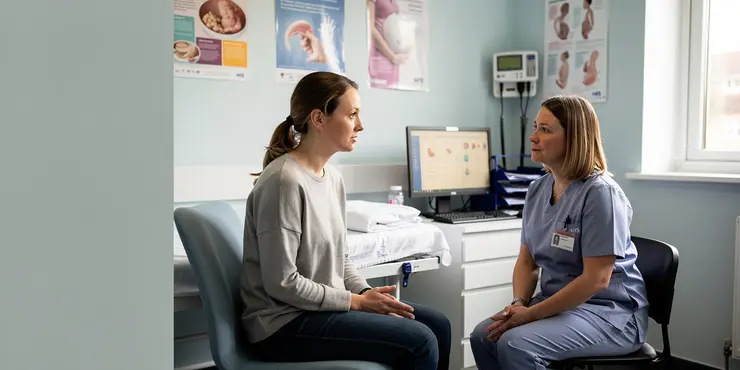
IVF Fertility Treatment from MumsNet
Relevance: 73%
-
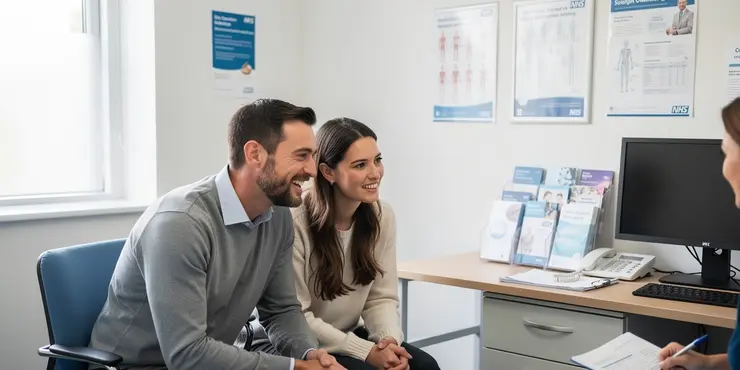
Are there risks associated with IVF?
Relevance: 70%
-
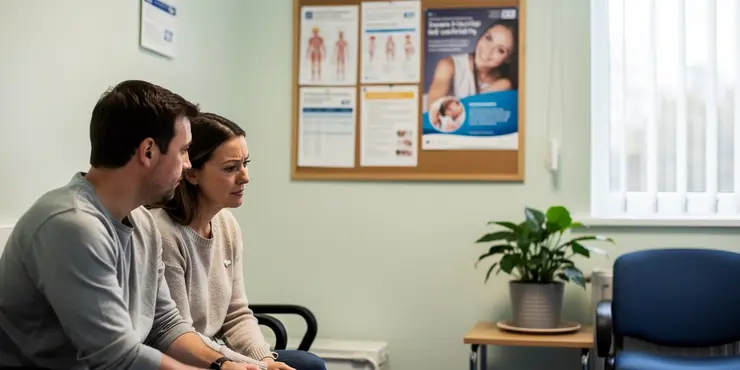
What is IVF?
Relevance: 70%
-
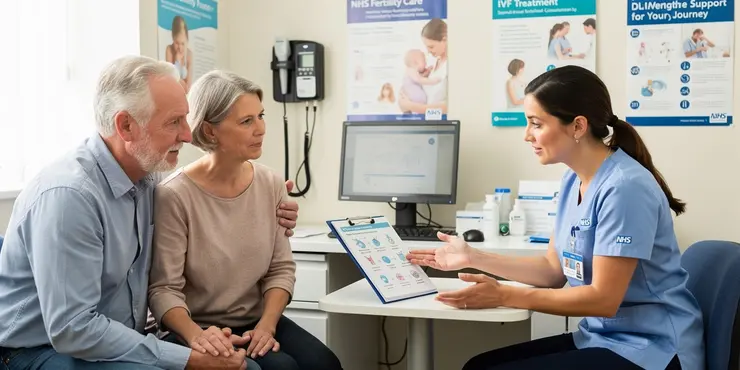
What is IVF and how does it work?
Relevance: 67%
-
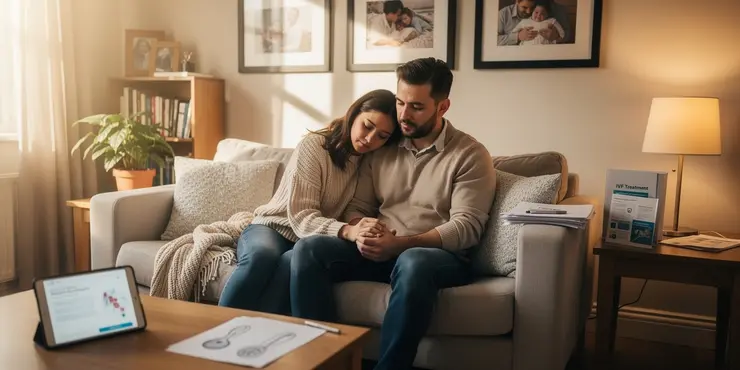
How many embryos are usually transferred in IVF?
Relevance: 65%
-
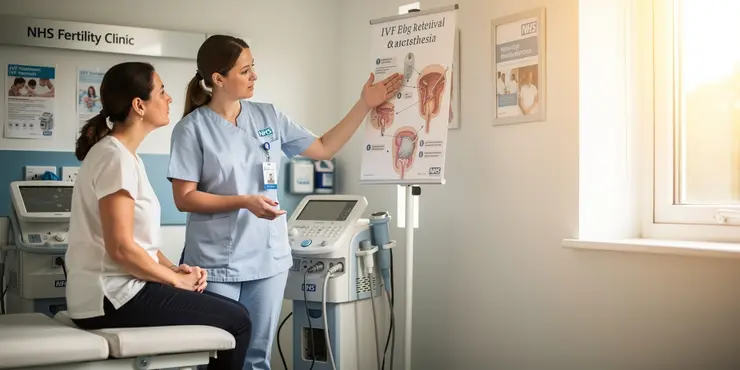
Does IVF require anesthesia?
Relevance: 63%
-

What should I expect during IVF treatment?
Relevance: 62%
-
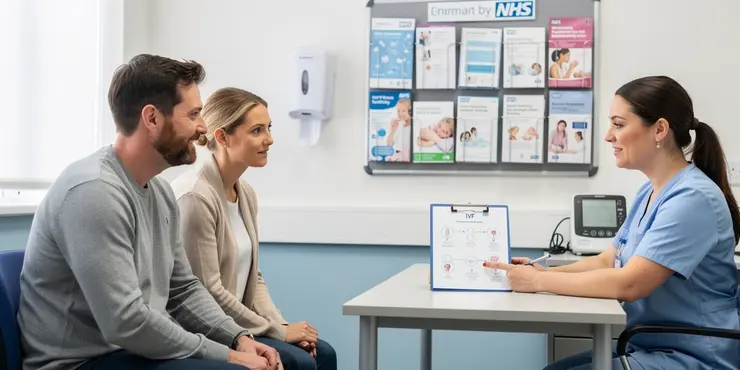
How does IVF work?
Relevance: 59%
-
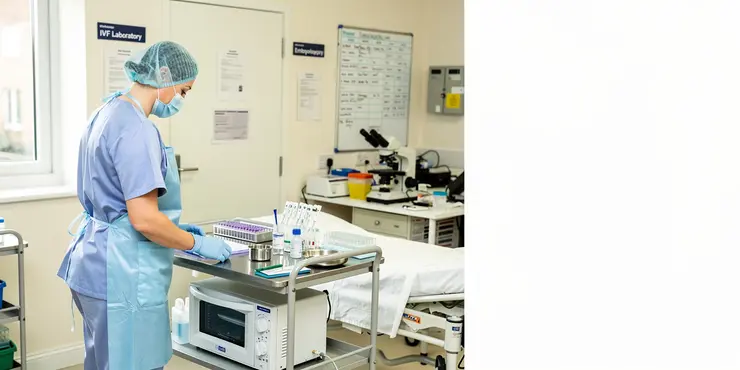
What is the role of the embryologist in IVF?
Relevance: 59%
-
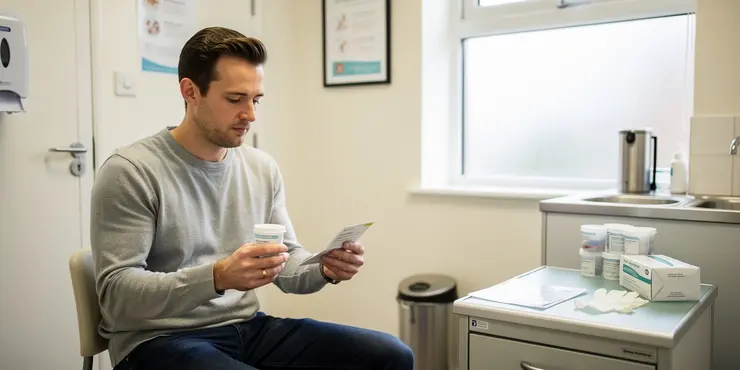
How is the sperm used in IVF?
Relevance: 59%
-
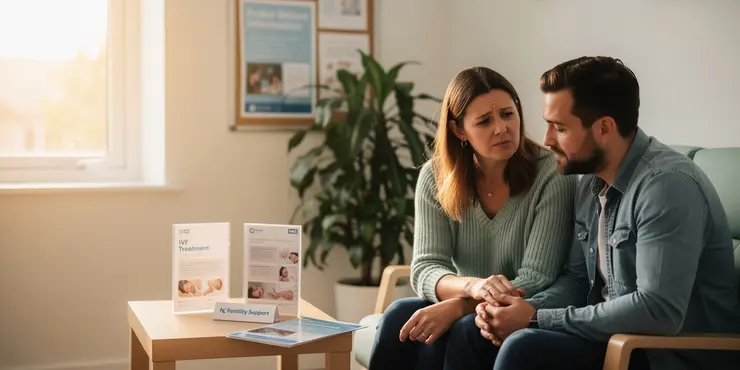
Infertility - IVF Treatment and Patient Information
Relevance: 59%
-

Who might need IVF?
Relevance: 59%
-
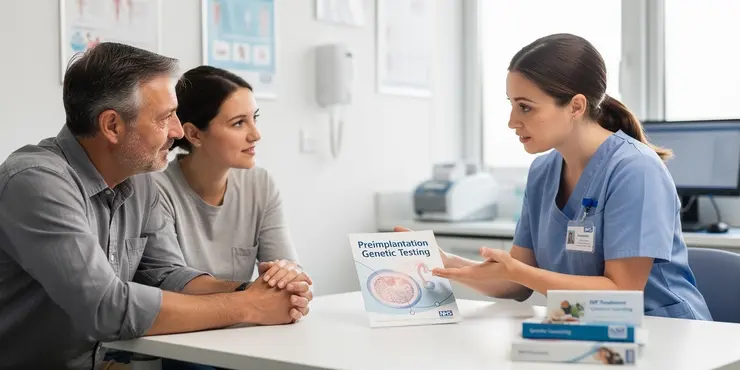
Can IVF be used for gender selection?
Relevance: 55%
-
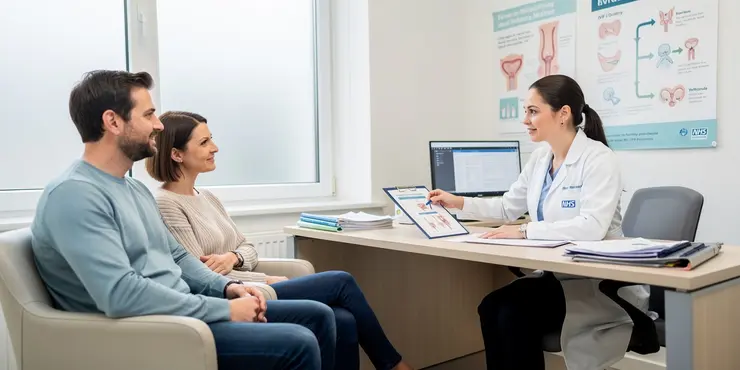
How do clinics determine if IVF is the right option?
Relevance: 54%
-
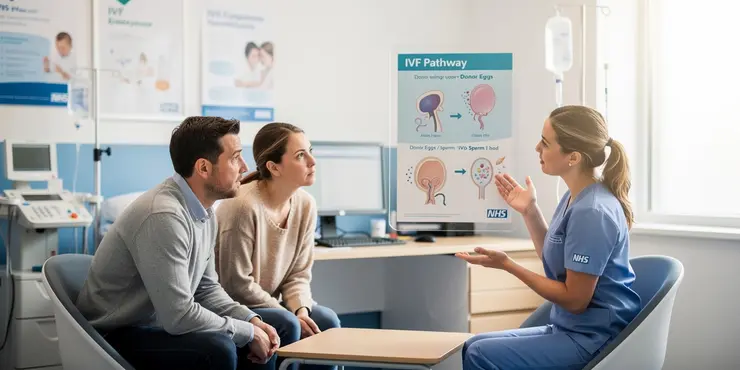
Can IVF be done with donor eggs or sperm?
Relevance: 53%
-

How are embryos transferred during IVF?
Relevance: 52%
-

Is cycling safe during pregnancy?
Relevance: 52%
-

Will the test affect my menstrual cycle?
Relevance: 52%
-
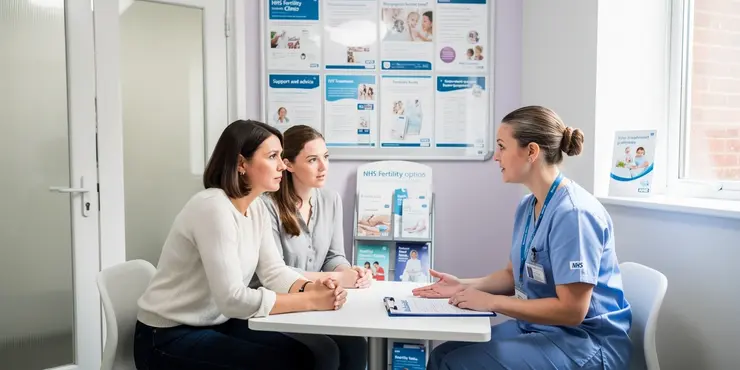
Fertility treatments on the up, but not via the NHS
Relevance: 34%
-

How to apply for NHS funding to treat infertility
Relevance: 29%
-
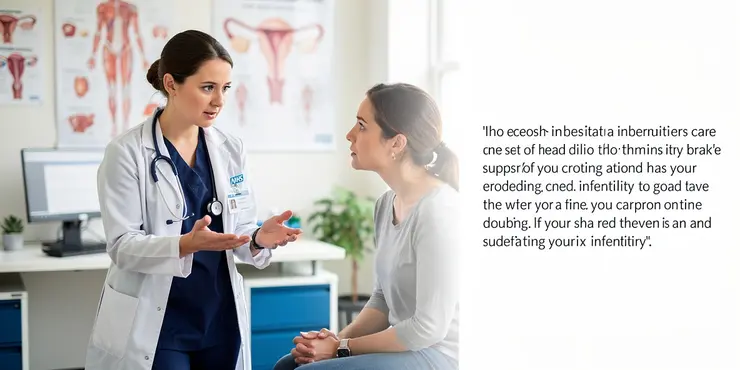
Female infertility explained
Relevance: 24%
-

Irregular periods - BSL
Relevance: 18%
-
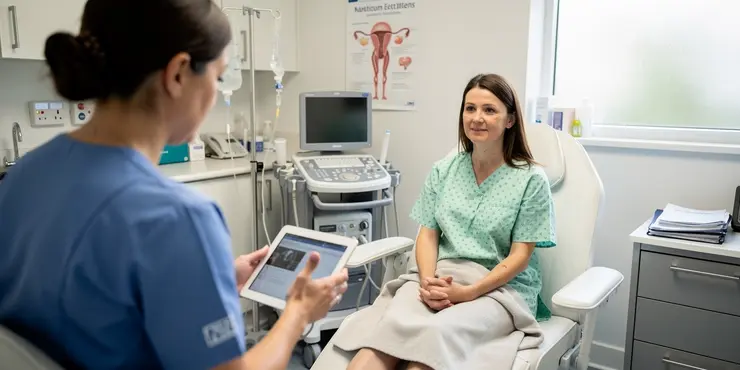
What is egg retrieval?
Relevance: 17%
-

What you need to know about irregular periods
Relevance: 16%
-
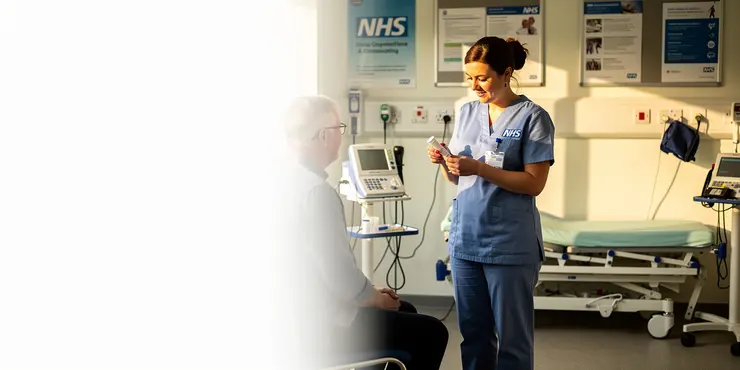
What is the relationship between cortisol and the circadian rhythm?
Relevance: 14%
-
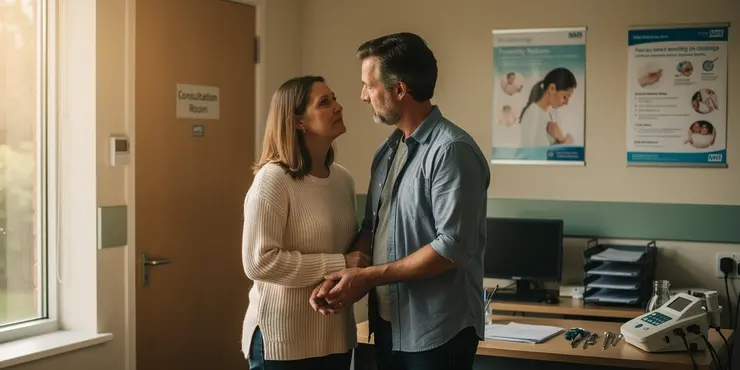
What happens to unused embryos?
Relevance: 14%
-
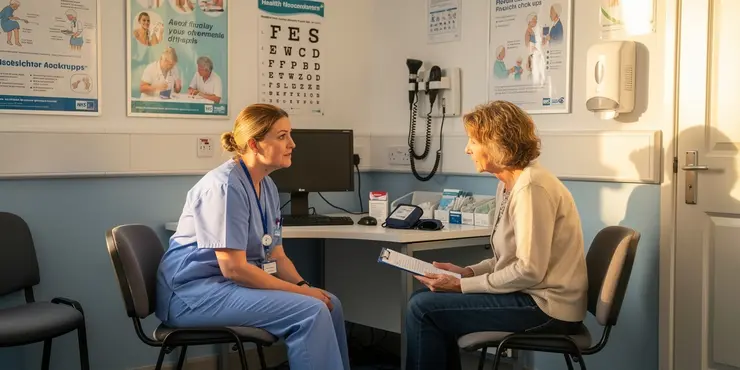
How do screw worms reproduce?
Relevance: 13%
-
Why is reassurance not always helpful for health-related anxiety?
Relevance: 13%
-
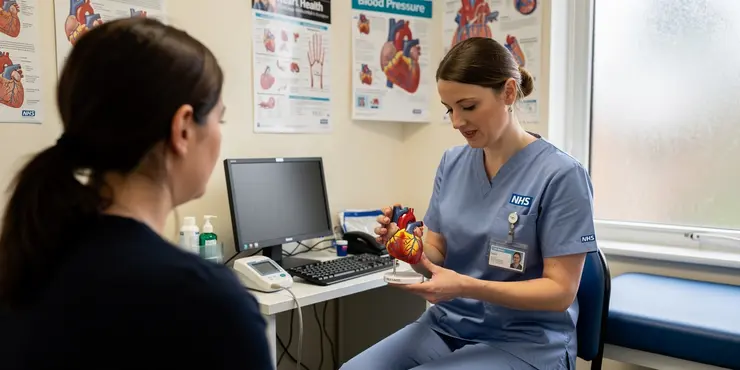
Cardiac Physiology Walkthrough
Relevance: 12%
-

What are the reasons for female infertility?
Relevance: 11%
-
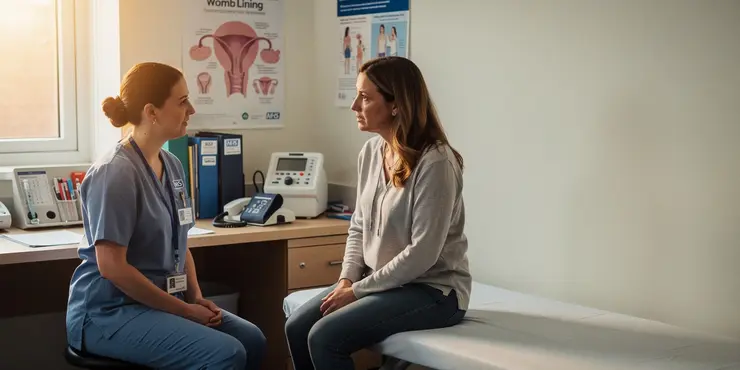
What is the Womb Lining test?
Relevance: 11%
-
Do mixed exercises build endurance?
Relevance: 11%
-
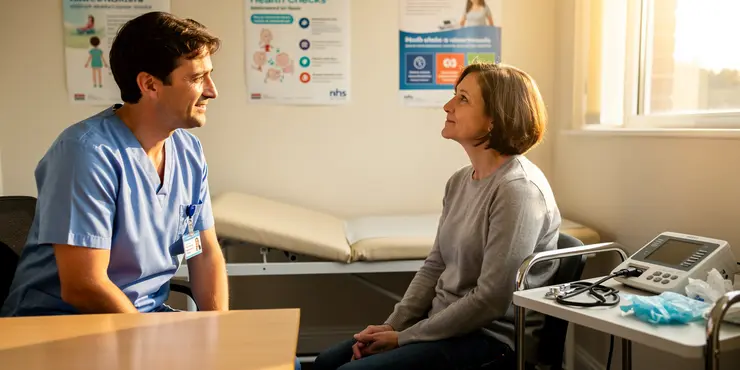
Are climate changes affecting mosquito populations in the UK?
Relevance: 11%
-
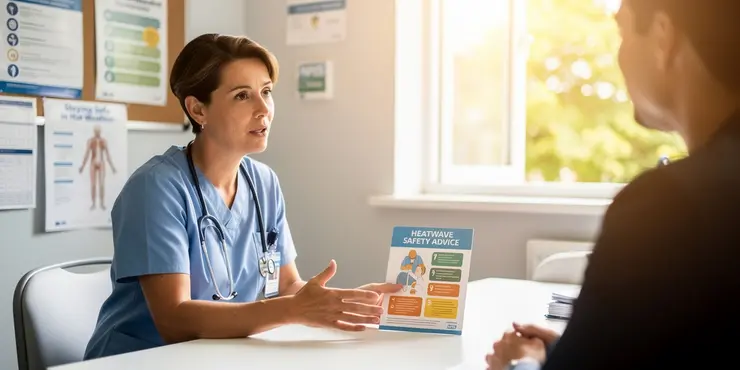
What activities should I avoid during a heatwave?
Relevance: 10%
-
How does sleep quality relate to menopause symptoms?
Relevance: 10%
-

What if my walk to work is too long?
Relevance: 10%
Understanding the IVF Cycle Timeline
For couples or individuals exploring in vitro fertilisation (IVF) as a means to conceive, understanding the timeline is crucial. IVF is a complex process that involves multiple stages, each with its own duration. It's essential to note that while some aspects of the procedure can be predicted, individual responses to treatment can vary.
Initial Consultation and Pre-treatment Preparation
The first step in an IVF cycle is the initial consultation with a fertility specialist. This appointment involves assessing the individual's or couple's medical history, conducting preliminary tests, and discussing the treatment plan. This stage can take a few weeks to a couple of months, depending on the availability of appointments and the completion of necessary tests.
Ovarian Stimulation
Once pre-treatment assessments are complete, the IVF cycle begins with ovarian stimulation. This involves taking fertility medications, commonly for 8-14 days, to encourage the ovaries to produce multiple eggs. During this period, patients undergo frequent monitoring through blood tests and ultrasounds to assess the response to medication and adjust dosages if necessary.
Egg Retrieval
Once the eggs have matured, a minor surgical procedure called egg retrieval is scheduled. This typically occurs around 34-36 hours after the final trigger injection, which prepares the eggs for collection. The retrieval process itself is brief, often taking only 20-30 minutes, but patients generally spend a few hours at the clinic to recover from anaesthetic effects.
Fertilisation and Embryo Culture
After retrieval, eggs are fertilised with sperm in the laboratory. The fertilisation process can vary, depending on whether traditional IVF or Intracytoplasmic Sperm Injection (ICSI) is used. Following fertilisation, the embryos are cultured in the lab, usually for 3-5 days, while embryologists monitor their development to identify the best candidates for transfer.
Embryo Transfer
Embryo transfer is a simple procedure conducted a few days after fertilisation, typically around day 3 or 5 of embryo culture. The selected embryo(s) are placed into the uterus, guided by an ultrasound. The process is brief and usually does not require anaesthesia, although some patients may experience mild discomfort.
Two-Week Wait and Pregnancy Test
The final part of the cycle is the two-week wait, a period filled with anticipation as patients wait to take a pregnancy test. Approximately 9-14 days after the embryo transfer, a blood test is conducted to measure the hormone hCG, indicating whether implantation has occurred and if a pregnancy is underway.
Total Duration of an IVF Cycle
In total, an IVF cycle typically spans 4-6 weeks, from the start of ovarian stimulation to the pregnancy test. However, additional time should be factored in for the initial consultation and pre-treatment preparations, making the entire journey closer to 6-8 weeks. The exact duration may vary based on individual circumstances and treatment responses.
Understanding the IVF Cycle Timeline
If you want to have a baby using in vitro fertilisation (IVF), it's important to know how the process works. IVF has different steps, and each step takes time. Remember, not everyone will have the same experience, so times can vary for each person.
First Meeting and Getting Ready
The IVF journey starts with a first meeting with a doctor who helps with having babies. The doctor will look at medical history and do some tests to make a plan. This part can take a few weeks to a couple of months. It depends on how quickly you can see the doctor and finish the tests.
Getting the Ovaries Ready
After all the tests are done, the IVF cycle begins with getting the ovaries ready. Medicines are used for about 8 to 14 days to help the ovaries make more eggs. During this time, there will be frequent check-ups with blood tests and scans to make sure the medicines are working well.
Collecting the Eggs
Once the eggs are ready, a small operation called egg retrieval is done. This usually happens 34-36 hours after a final medicine is given. The operation is quick, taking about 20-30 minutes. Afterward, you will stay at the clinic for a few hours to rest.
Fertilising the Eggs and Growing Embryos
After the eggs are collected, they are mixed with sperm in a lab to create embryos. This can be done in different ways. The embryos are then watched for a few days, usually 3-5 days, to pick the best ones for the next step.
Transferring the Embryo
A few days after fertilisation, the best embryo is placed into the womb. This is a simple procedure done with the help of an ultrasound. It doesn’t take long and usually doesn’t hurt, but some people might feel a bit uncomfortable.
Waiting Two Weeks and Testing for Pregnancy
The last part is waiting for about two weeks to see if it worked. After 9-14 days, a blood test will tell if you are pregnant by checking for a hormone called hCG.
How Long Does an IVF Cycle Take?
From start to finish, an IVF cycle usually takes 4-6 weeks. However, you need to add more time for the first meeting and preparation. So, the whole process might take 6-8 weeks. The time can change based on each person’s needs and how they respond to treatment.
Frequently Asked Questions
What is the typical duration of one IVF cycle?
An IVF cycle typically lasts about 4 to 6 weeks from the start of medication to the retrieval and transfer of embryos.
How long do the initial steps of an IVF cycle take?
The initial steps, including ovarian stimulation, usually take about 10 to 14 days.
How many days does the egg retrieval process take?
The egg retrieval process itself is a one-day procedure, but it typically occurs 34 to 36 hours after the trigger shot.
How long after egg retrieval does embryo transfer occur?
Embryo transfer usually occurs 3 to 5 days after egg retrieval.
How long does the embryo implantation take post-transfer?
Implantation can occur within a few days after the embryo is transferred back into the uterus.
What is the duration of the ovarian stimulation phase?
The ovarian stimulation phase usually lasts about 8 to 14 days.
How long is the luteal phase in an IVF cycle?
The luteal phase, after embryo transfer, lasts about 9 to 14 days until a pregnancy test can confirm results.
How long before starting IVF must one prepare?
Preparations such as diagnostic testing and screenings can take several weeks before starting the IVF cycle.
What is the timeline for fertility medication in IVF?
Fertility medications are usually taken for about 10 to 12 days during the ovarian stimulation phase.
How long does it take to recover from egg retrieval?
Recovery from egg retrieval usually takes a day or two.
What is the length of time from IVF start to pregnancy test?
From the start of the cycle to the pregnancy test is roughly 4 to 6 weeks.
How long is the entire IVF treatment process, including preparation?
Including preparation, the entire IVF process can take several months.
Is there a waiting period between IVF cycles?
Often, a waiting period of one to two menstrual cycles is recommended between IVF attempts.
How frequently are doctor visits during an IVF cycle?
Doctor visits can be frequent, especially during the ovarian stimulation, averaging every few days for monitoring.
How many ultrasounds are typically performed during an IVF cycle?
Several ultrasounds, approximately 3 to 5, are performed during the ovarian stimulation phase.
How long is the typical wait for a frozen embryo transfer?
A frozen embryo transfer usually takes place in a different cycle, requiring a wait of several weeks to months.
What is the total number of days from start to finish of IVF without delay?
Without delays, the total days from start to finish can be around 28 to 42 days.
Does the IVF cycle time frame vary for different protocols?
Yes, IVF cycle lengths can vary depending on the protocol used, such as long, short, or antagonist protocols.
What is the duration of the egg and sperm retrieval process?
The egg retrieval is done in a single day, while sperm collection can be done the same day or in advance.
How is time managed if genetic testing is involved in an IVF cycle?
Genetic testing adds additional time, as embryos need to be frozen until results return, extending the cycle by several weeks.
How long does one IVF cycle usually take?
An IVF cycle takes about 4 to 6 weeks. It starts with taking medicine and ends when doctors take out and put back the embryos.
How long do the first steps of IVF take?
IVF means having a baby by doctors helping. The first steps take 2 to 3 weeks. Doctors check and make sure everything is ready. This time can be different for everyone.
Helpful Tools:
- Ask a friend to hear it and talk about it with you.
- Use a calendar to keep track of the days.
The first steps take about 10 to 14 days. This part starts with making the ovaries produce more eggs.
How long does it take to get eggs?
It takes about 1 to 2 weeks to get eggs. Doctors will help you. They will give you medicine. This helps your body make eggs.
If you need help understanding, you can ask a friend or family member.
The egg collection is a short procedure that takes one day. It usually happens 34 to 36 hours after you get the special medicine called a trigger shot.
When do doctors put the embryo in the womb after taking out the eggs?
The embryo is put back into the body 3 to 5 days after the eggs are taken out.
How long does it take for the embryo to stick after transfer?
The tiny baby starts to stick to the mom's tummy a few days after it's put back in.
How long does the ovary stimulation phase last?
The time when doctors help eggs grow in the ovaries takes about 8 to 14 days.
How many days is the luteal phase in an IVF cycle?
The luteal phase is the time after a woman's eggs are collected in an IVF cycle. It usually lasts about 10 to 14 days.
During this time, the woman's body prepares for pregnancy. Doctors might give medicine to help the body's hormones.
If you need help understanding, you can use pictures or talk to a friend. You can also ask a doctor to explain it to you.
After the embryo is put into the womb, the wait time is between 9 to 14 days. Then, you can take a pregnancy test to see if you are pregnant.
How long should you get ready before starting IVF?
Before you start IVF, it is good to get ready. This might help the process work better. Talk to your doctor. They can help you know what to do.
Ask your family and friends for support. They can help you feel better. You can also use apps to keep track of your health. These things can make getting ready for IVF easier.
Before you start IVF, there are some tests and checks you need to do. These might take a few weeks.
When do you take medicine to help with having a baby in IVF?
IVF helps people have babies. Taking medicine is one part of IVF.
The doctor will give you medicine to help eggs grow. This can take a few weeks.
Here are some tips to help:
- Ask your doctor lots of questions.
- Write down what the doctor tells you.
- Use pictures or charts to help you understand.
- Have a friend or family member help you remember what to do.
People usually take medicine to help have a baby for about 10 to 12 days. This is during a time called the "ovarian stimulation phase."
How long does it take to feel better after taking eggs out?
After doctors collect the eggs, most people feel better in one or two days.
How long does it take to get a pregnancy test after starting IVF?
If you are starting IVF, you might wonder: How long until you can take a pregnancy test? This is a common question.
IVF steps:
- First, doctors help eggs and sperm meet.
- Next, a baby might start to grow.
- Then, doctors check if you are pregnant.
Usually, it takes about 2 weeks from the IVF start to the pregnancy test.
Here are some tips to help you:
- Use a calendar to keep track of days.
- Ask a family member or friend for support.
- Talk to your doctor about any questions.
It takes about 4 to 6 weeks from when your cycle starts to when you can take a pregnancy test.
How long does the whole IVF process take, including getting ready?
Getting ready for IVF can take a long time. It can take a few months from start to finish.
Do you have to wait between IVF tries?
Doctors usually say to wait for one or two periods before trying IVF again.
How often do you see the doctor during IVF?
When you are getting treatment to help your ovaries, you might need to see the doctor a lot. This could be every few days to make sure everything is going well.
How many ultrasound pictures are usually taken during IVF?
Doctors use a special camera called an ultrasound to look inside the body. During the time when we help eggs grow, doctors will use this camera about 3 to 5 times.
How long do you wait for a frozen embryo transfer?
Here is some helpful information:
- A frozen embryo transfer is when a frozen embryo is put back in the womb.
- The wait time can be different for everyone.
- Usually, it takes a few weeks to a few months.
- You can talk to your doctor to find out more about your wait time.
- Using a calendar and making notes can help you keep track of time.
You will need to wait a few weeks or months for a frozen embryo transfer. This happens in a different cycle.
How many days does IVF take from start to finish without any stops?
From start to finish, it can take about 28 to 42 days.
Do different IVF plans take different times?
Yes, the time it takes for IVF can be different. It depends on the steps your doctor uses, like long, short, or antagonist plans.
How long does it take to collect eggs and sperm?
The doctor takes the eggs in one day. The sperm can be collected the same day or before.
How do we plan time for genetic testing in IVF?
If you are doing genetic testing in IVF, you need to plan your time well. Here is a simple way to think about it:
- First, you take medicine to get your eggs ready.
- Then, doctors take the eggs out.
- The eggs are mixed with sperm to make embryos.
- Doctors check the embryos. This is the genetic testing part. It takes a little time.
- When the tests are done, a healthy embryo is put in the womb.
Here are some tips to help you plan:
- Ask your doctor how long each step will take.
- Use a calendar to keep track of important dates.
- Talk to other people who have been through IVF.
Remember: Take things one step at a time. It's okay to ask for help if you need it.
Genetic testing takes extra time. Doctors freeze the embryos and wait for the test results. This makes the process last several more weeks.
Useful Links
This website offers general information and is not a substitute for professional advice.
Always seek guidance from qualified professionals.
If you have any medical concerns or need urgent help, contact a healthcare professional or emergency services immediately.
Some of this content was generated with AI assistance. We’ve done our best to keep it accurate, helpful, and human-friendly.
- Ergsy carfully checks the information in the videos we provide here.
- Videos shown by Youtube after a video has completed, have NOT been reviewed by ERGSY.
- To view, click the arrow in centre of video.
- Most of the videos you find here will have subtitles and/or closed captions available.
- You may need to turn these on, and choose your preferred language.
- Go to the video you'd like to watch.
- If closed captions (CC) are available, settings will be visible on the bottom right of the video player.
- To turn on Captions, click settings .
- To turn off Captions, click settings again.
More Items From Ergsy search
-

What are the main steps in an IVF cycle?
Relevance: 100%
-

How long does an IVF cycle take?
Relevance: 99%
-

Is IVF successful?
Relevance: 80%
-

Does IVF guarantee pregnancy?
Relevance: 74%
-

IVF Fertility Treatment from MumsNet
Relevance: 73%
-

Are there risks associated with IVF?
Relevance: 70%
-

What is IVF?
Relevance: 70%
-

What is IVF and how does it work?
Relevance: 67%
-

How many embryos are usually transferred in IVF?
Relevance: 65%
-

Does IVF require anesthesia?
Relevance: 63%
-

What should I expect during IVF treatment?
Relevance: 62%
-

How does IVF work?
Relevance: 59%
-

What is the role of the embryologist in IVF?
Relevance: 59%
-

How is the sperm used in IVF?
Relevance: 59%
-

Infertility - IVF Treatment and Patient Information
Relevance: 59%
-

Who might need IVF?
Relevance: 59%
-

Can IVF be used for gender selection?
Relevance: 55%
-

How do clinics determine if IVF is the right option?
Relevance: 54%
-

Can IVF be done with donor eggs or sperm?
Relevance: 53%
-

How are embryos transferred during IVF?
Relevance: 52%
-

Is cycling safe during pregnancy?
Relevance: 52%
-

Will the test affect my menstrual cycle?
Relevance: 52%
-

Fertility treatments on the up, but not via the NHS
Relevance: 34%
-

How to apply for NHS funding to treat infertility
Relevance: 29%
-

Female infertility explained
Relevance: 24%
-

Irregular periods - BSL
Relevance: 18%
-

What is egg retrieval?
Relevance: 17%
-

What you need to know about irregular periods
Relevance: 16%
-

What is the relationship between cortisol and the circadian rhythm?
Relevance: 14%
-

What happens to unused embryos?
Relevance: 14%
-

How do screw worms reproduce?
Relevance: 13%
-
Why is reassurance not always helpful for health-related anxiety?
Relevance: 13%
-

Cardiac Physiology Walkthrough
Relevance: 12%
-

What are the reasons for female infertility?
Relevance: 11%
-

What is the Womb Lining test?
Relevance: 11%
-
Do mixed exercises build endurance?
Relevance: 11%
-

Are climate changes affecting mosquito populations in the UK?
Relevance: 11%
-

What activities should I avoid during a heatwave?
Relevance: 10%
-
How does sleep quality relate to menopause symptoms?
Relevance: 10%
-

What if my walk to work is too long?
Relevance: 10%


